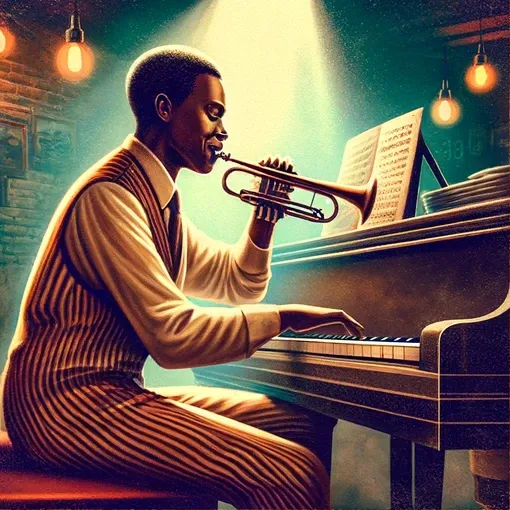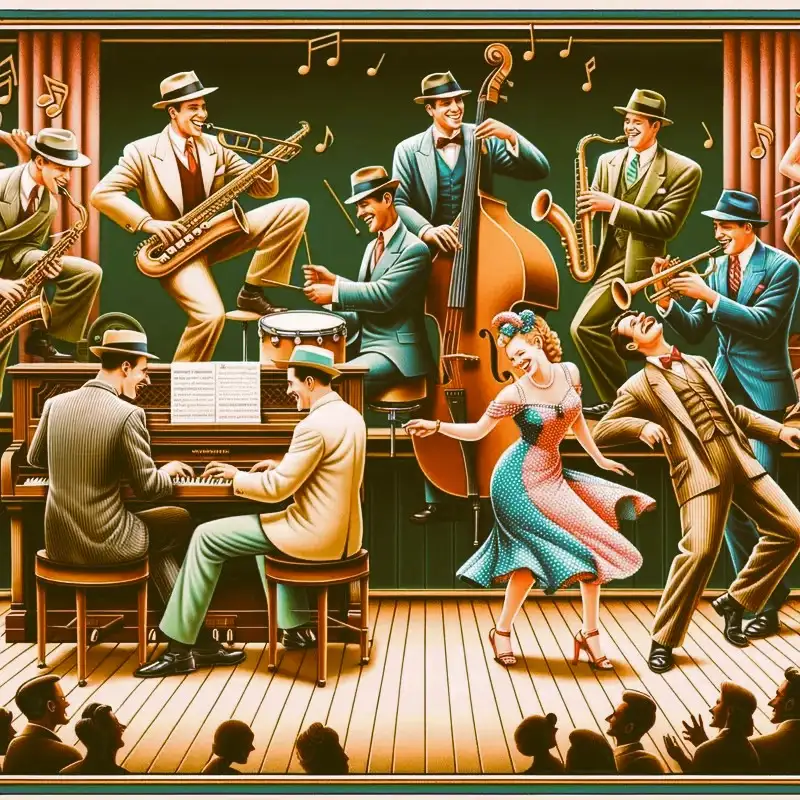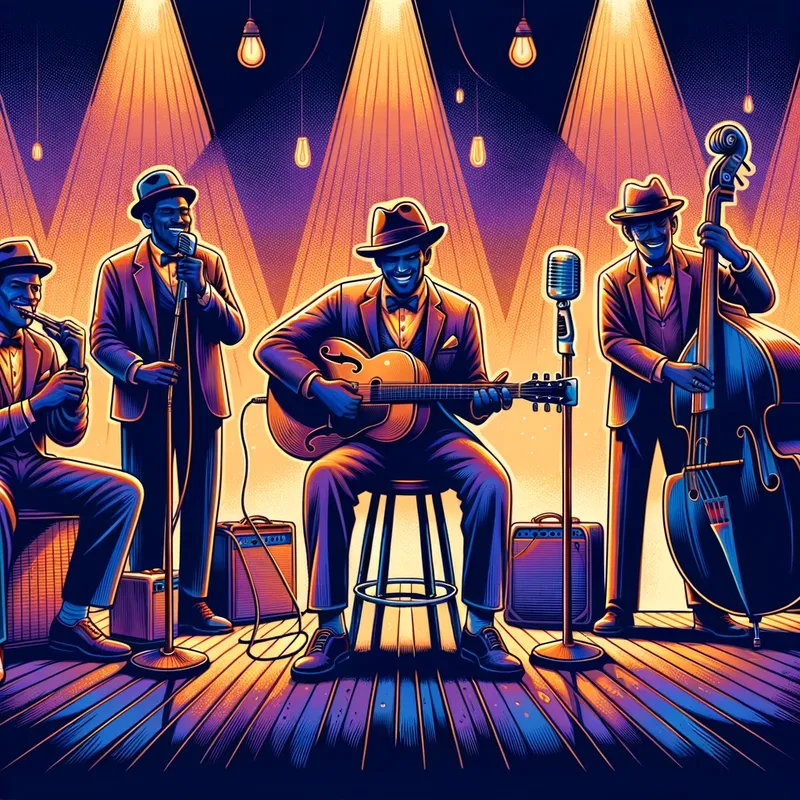Boogie-Woogie Blues

Born in African American communities in the early 20th century, Boogie-Woogie Blues is best known for its fast tempo, repetitive left-hand bass patterns on the piano, and improv-heavy melodies.
Table of Contents
The Roots
Boogie-Woogie got its groove from the early blues styles that came out of the Deep South. You know, the kind of blues you hear on the Mississippi Delta, with work songs as its ancestors.
But then it migrated up north, especially to Chicago, where it became the life of the party during the Roaring Twenties and the years that followed.
The Legends
- Albert Ammons: This man was a wizard on the keys, known for his powerful style.
- Pete Johnson: A maestro who often teamed up with Ammons for legendary two-piano performances.
- Meade Lux Lewis: Another giant, famed for his intricate and fast-paced performances.
These three, often called the “Boogie-Woogie Trio,” were instrumental in popularizing the genre.
The Classics: Songs You Gotta Hear
Listen to these, and you’ll get what Boogie-Woogie is all about:
- “Boogie Woogie Stomp” – Albert Ammons
- “Roll ‘Em Pete” – Pete Johnson and Big Joe Turner
- “Honky Tonk Train Blues” – Meade Lux Lewis
Instruments
It’s mainly piano-focused, but it’s always cool to add in some drums, sax, and maybe even a stand-up bass.
Today’s Boogie-Woogie
While its heyday might have been nearly a century ago, you can still catch live performances, especially at blues festivals and piano competitions.
Plus, there are modern players like Jools Holland and Silvan Zingg keeping the tradition alive.
FAQ
What Is Boogie-Woogie?
Boogie-Woogie is a fast-paced, piano-centered subgenre of blues music. Known for its danceable rhythm and complex bass lines, it became especially popular in the early to mid-20th century.
Is Boogie-Woogie only for the piano?
While Boogie-Woogie originated as a piano-centric genre, you can definitely find other instruments in the mix. Think saxophones, drums, and bass guitars adding spice to the musical stew.
How is Boogie-Woogie different from traditional blues?
Boogie-Woogie is like the energetic cousin of traditional blues. It retains the emotional core of blues but kicks up the tempo and complexity, making it more suitable for dancing and upbeat settings.

